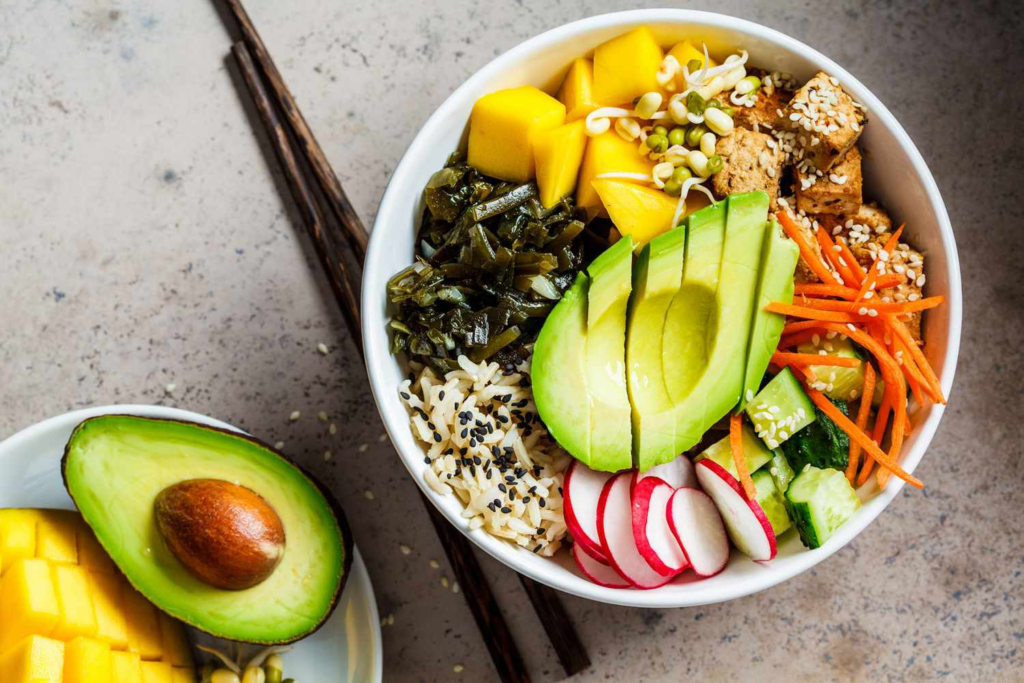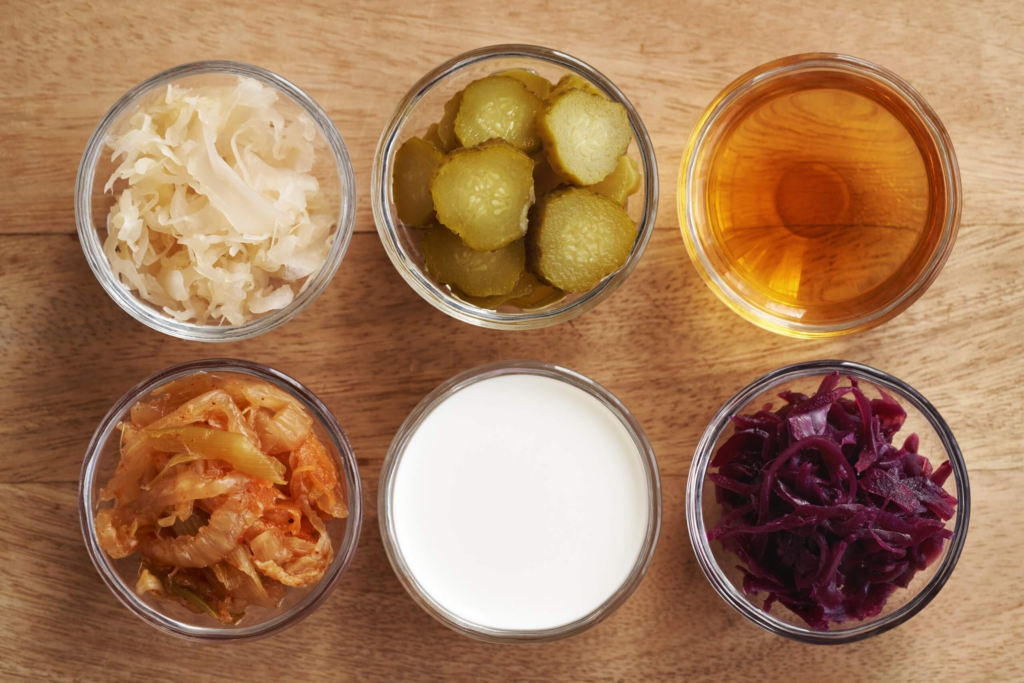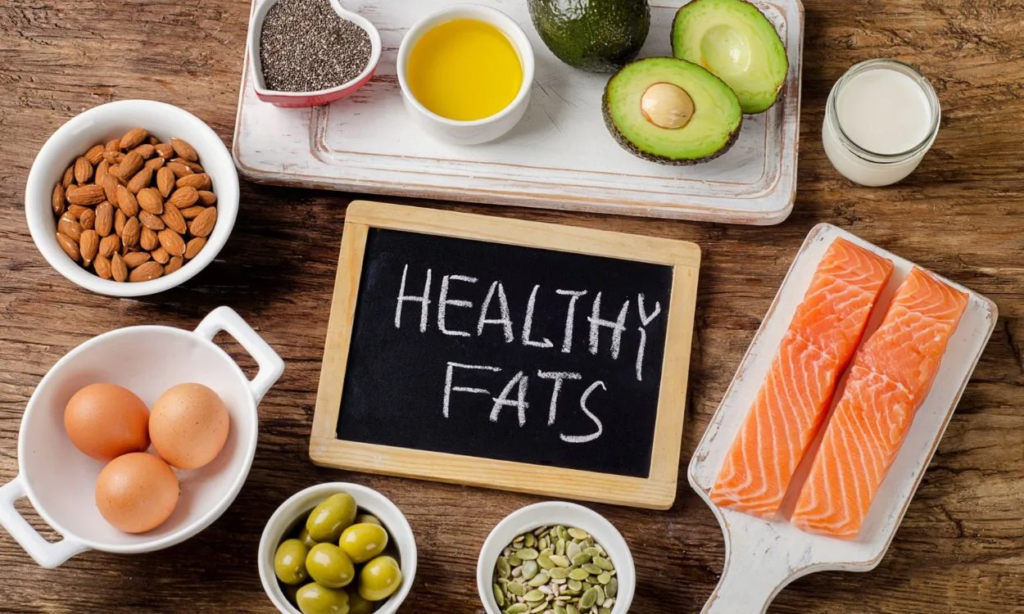As we navigate the ever-changing landscape of healthy eating, staying informed about the latest trends that can enhance our overall well-being becomes increasingly vital. Learn about the top healthy food trends. These trends often encompass everything from sustainable sourcing to innovative culinary techniques. Get informed about the latest healthy food trends. Here’s a look at some of the most significant healthy food trends that are gaining traction in today’s diet landscape:
1. Plant-Based Everything
The rise of plant-based diets is more than just a trend; it’s a movement towards more sustainable eating habits. Increasing numbers of individuals are adopting vegan and vegetarian lifestyles, and this shift is mirrored in the food industry. Expect to see an expanded range of:
– Plant-Based Meat Alternatives: Lentil burgers, chickpea patties, and innovative products made from pea protein and other legumes are elevating the traditional meat substitute.
– Creative Plant-Based Dairy: Almond, oat, and coconut milk have grown in popularity, as have artisanal vegan cheeses made from nuts and seeds, which provide rich flavors and textures.
– Vegan-Friendly Restaurants: More eateries are embracing entirely plant-based menus, catering to the growing demand for delicious, cruelty-free dining experiences.
2. Sustainable Seafood
As awareness of oceanic health issues and overfishing rises, sustainable seafood is becoming crucial. Key aspects include:
– Eco-Labels and Certifications: Look for seafood with certifications like “Best Choice” or “Good Alternative” from organizations such as the Marine Stewardship Council (MSC) or the Monterey Bay Seafood Watch.
– Locally Sourced Options: Emphasizing seafood that is both seasonal and sourced from local waters helps minimize carbon footprints and supports local economies.
– Plant-Based Seafood Alternatives: Innovations are underway with products that replicate the taste and texture of fish and shellfish, providing guilt-free options for seafood lovers.
3. Fermented Foods
The health benefits of fermented foods are increasingly recognized, primarily due to their rich content of probiotics that support gut health and overall immunity. Consider incorporating:
– Traditional Ferments: Foods like kimchi and sauerkraut not only pack a flavorful punch but also promote digestive health.
– Probiotic-Rich Beverages: Kefir and kombucha are not just trendy beverages but excellent sources of beneficial bacteria.
– Soy-Based Ferments: Miso and tempeh are versatile options that can add a deep umami flavor to a variety of dishes.
4. Mindful Eating
Mindful eating is more than just a dietary choice; it’s a holistic approach to consuming food with intention and awareness. To practice mindful eating, consider:
– Distraction-Free Eating: Make mealtimes screen-free so you can fully engage with your food and savor each bite.
– Savoring Flavors: Take a moment to appreciate the flavors and textures of your meals, which can enhance satisfaction and reduce overeating.
– Gratitude Practices: Cultivating thankfulness for the food on your plate can lead to a more positive relationship with eating.
5. Functional Mushrooms
Mushrooms are not just culinary delights; some varieties carry impressive health benefits that can enhance various bodily functions. Explore:
– Reishi and Chaga: Known for their adaptability to stress, these mushrooms support the immune system and overall vitality.
– Lion’s Mane: Often praised for its potential cognitive benefits, lion’s mane may help with memory and mental clarity.
Cordyceps: Often included in sports nutrition, this mushroom is believed to boost energy and endurance.
6. Alternative Grains
Looking beyond traditional grains offers a world of flavor and nutrition. Discover new options such as:
– Ancient Grains: Varieties like Kamut, spelled, and farro is rich in nutrients and flavour, often boasting high protein and fiber content.
– Gluten-Free Choices: Grains like rice and corn are excellent options for those with gluten sensitivities or celiac disease, providing diversity in meals.
– Vegetable-Based Alternatives: Cauliflower rice and zucchini noodles are innovative, lower-carb alternatives that add volume and nutrition to dishes.
7. Healthy Fats
Contrary to outdated beliefs, healthy fats are integral to a balanced diet and can significantly affect heart health. Embrace:
– Avocado and Olive Oil: These fats are not only delicious but filled with monounsaturated fats, which are beneficial for cardiovascular health.
– Nuts and Seeds: Consuming a variety of nuts and seeds, such as almonds and chia, can contribute to heart health and provide essential nutrients.
– Fatty Fish: Including sources like salmon and sardines ensures an adequate intake of omega-3 fatty acids essential for reducing inflammation.
8. Gut-Friendly Foods
Maintaining a healthy gut is crucial for overall wellness. To support gut health, include:
– Probiotic-Rich Options: Foods like yogurt and kefir supply beneficial bacteria that promote a balanced gut microbiome.
– Prebiotic Foods: Incorporate foods such as asparagus, bananas, and onions, which help nourish the good bacteria in your gut.
– Gut-Soothing Herbs: Ingredients like ginger and turmeric add flavor and can help soothe gastrointestinal discomfort.
9. Eco-Friendly Packaging
As environmental concerns grow, so does the commitment to reducing waste through innovative packaging solutions. Look for:
– Biodegradable and Compostable Materials: Many brands are shifting to packaging that breaks down quickly and minimizes environmental impact.
– Minimalist Packaging: Products with little to no packaging and bulk-buy options help reduce waste and promote sustainability.
– Refillable and Reusable Products: Brands offering refillable containers encourage recycling and reduce single-use plastics.
10. Personalized Nutrition
With genetic testing and data analytics advancements, personalized nutrition is becoming more accessible and impactful. Expect:
– Tailored Dietary Plans: Those seeking better health can look forward to individualized dietary recommendations based on personal health data.
– DNA-Based Nutrition Solutions: Analyzing genetic factors will help individuals optimize their diets for their unique biological makeup.
– AI-Driven Meal Planning: Advanced technologies enable more innovative meal planning and grocery shopping suggestions that cater to personal health needs.
Key Takeaways
– Plant-based diets and sustainable seafood options are set to dominate the food scene.
– The health benefits of fermented foods and functional mushrooms cannot be overstated.
– Mindful eating and focusing on gut health are essential for improving food relationships.
– Embracing alternative grains and healthy fats can diversify and enhance nutrition.
– Eco-friendly packaging and tailored nutrition are emerging trends that reflect growing environmental awareness.
– Stay ahead with expert insights on healthy food trends, nutrition, and wellness.
Actionable Insights
– Make an effort to incorporate more plant-based meals into your weekly diet.
– Opt for sustainable seafood choices when shopping or dining out.
– Experiment with various fermented foods and explore the benefits of functional mushrooms.
– Practice mindful eating habits by prioritizing awareness during meals.
– Investigate different alternative grains and healthy fats to enrich your diet.









